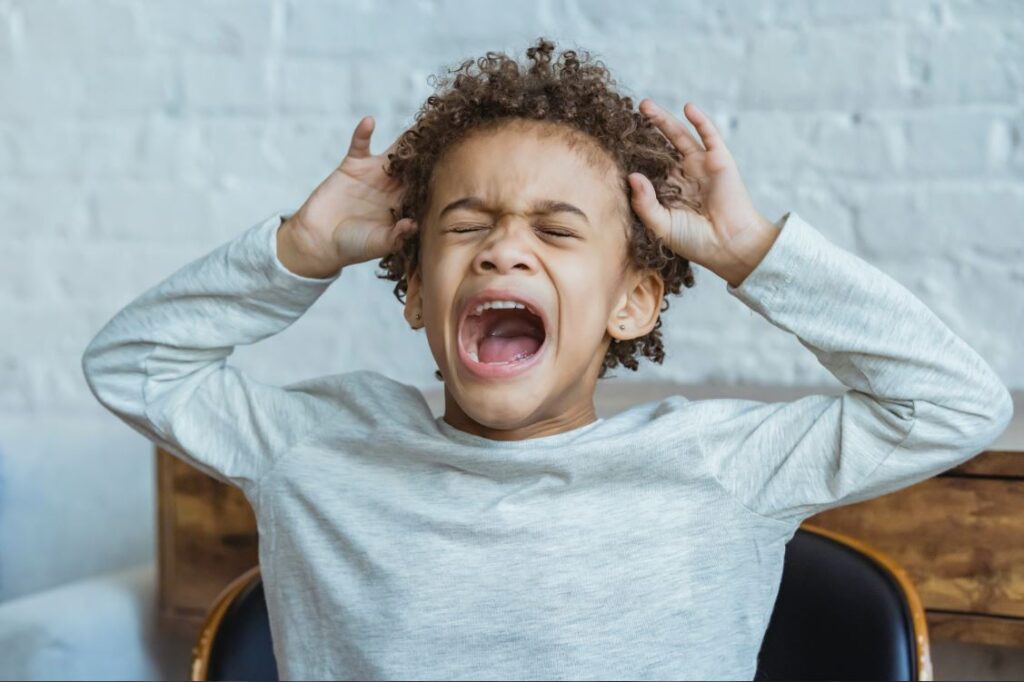
Can you die from a panic attack in your sleep? During panic attacks, your heart is pounding and you can’t catch your breath. You feel like you’re dying or going crazy. Despite these symptoms, you’re not in any danger. You may even mistake a panic attack for a medical emergency, such as a heart attack, because the physical symptoms mimic those of a serious illness. But, no, you cannot die from a panic attack in your sleep.
Panic attacks are sudden episodes of extreme fear
Panic attacks are sudden episodes of extreme fear that occur when you’re not at all in any danger. The fear and terror are out of proportion to what’s really happening in your life, but they can be terrifying nevertheless. Can you die from a panic attack in your sleep you may still ask? Well not likely.
Your body releases the hormone adrenaline during a panic attack to increase your heart rate and blood pressure and trigger the fight-or-flight response. It also increases the activity of the amygdala, causing your fear center to go into overdrive.
People who have anxiety and panic disorders can experience one-time or recurring panic attacks. They can be expected (like when a person fears spiders and has a panic attack when they see one), or unexpected (like when a person has a panic attack at work). You can try to prevent panic attacks by learning about what causes them. You can also treat them with anti-anxiety drugs and/or psychotherapy.
Again the question: Can you die from a panic attack in your sleep? A panic attack while sleeping is called a night terror. During a night terror, you are still asleep but you can’t breathe, your heart rate is high, and you have other symptoms of panic attacks, such as sweating, feeling like you’re choking, heart palpitations, trembling, chills, chest pain, and a sense of impending doom.
How to stop panic attacks at night
One panic attack at night is a nightmare, but multiple can lead to a sleep loss, which is bad news for your health. Not getting enough rest can lead to weight gain and inability to concentrate during the day plus a dysfunctional immune system, among other issues. It also increases the risk of a nocturnal panic attack, and that fear can further prevent you from sleeping well.
The good news is, while nocturnal panic attacks are uncommon, they can be managed using lifestyle tips and treatment methods. Some people have found that doing breathing exercises, listening to relaxing music or even using a weighted blanket can help to reduce their anxiety levels and make it easier to fall asleep at night.
When a panic attack occurs, it is best to try and distract yourself. Carbonell suggests regulating your breathing, focusing on positive thoughts and images, and exercising or stretching to burn off excess adrenaline. He also advises against trying to go back to sleep immediately, as this could escalate the panic.
If you are unable to calm down by yourself, it is recommended to contact a 24-hour support line such as Samaritans or Mind for advice and assistance. It is also worth contacting your doctor for more comprehensive guidance, as some people have found prescription medication to be effective at reducing panic attacks and helping them sleep better at night. However, it is always a good idea to try and control the symptoms naturally before resorting to drugs.
How to distract yourself during a panic attack
Experiencing a panic attack can be a terrifying experience, but there are various techniques you can use to distract yourself and help alleviate the symptoms. Here are some effective ways to distract yourself during a panic attack:
Deep breathing: Deep breathing is one of the most effective ways to calm down during a panic attack. Focus on taking slow, deep breaths in through your nose and out through your mouth. Count to five as you inhale and exhale to help regulate your breathing.
Grounding techniques: Grounding techniques involve focusing on your surroundings and your physical senses to help you stay present and calm. You can try focusing on the texture of an object in your hand, the sound of birds outside, or the feeling of your feet on the ground.
Progressive muscle relaxation: Progressive muscle relaxation involves tensing and relaxing your muscles in a specific order to help release physical tension and reduce anxiety. Start by tensing your toes for five seconds, then relaxing them for 10 seconds. Move up your body, tensing and relaxing each muscle group.
Visualization: Visualization involves imagining yourself in a peaceful, calming environment. You can close your eyes and picture yourself on a beach, in a forest, or any other place that makes you feel relaxed and happy.
Engage in a physical activity: Engaging in a physical activity can help distract you from your panic attack and release endorphins that can help you feel better. You can try going for a walk, doing some yoga, or even just stretching.
Listen to calming music: Listening to calming music can help reduce anxiety and promote relaxation. Choose music that makes you feel calm and peaceful, and focus on the melody and lyrics.
Talk to someone: Talking to someone you trust can help distract you from your panic attack and provide emotional support. You can call a friend, family member, or mental health professional.
Remember, everyone experiences panic attacks differently, so it’s important to find what works best for you. If you’re struggling with panic attacks, consider seeking professional help from a mental health provider. They can help you develop coping strategies and provide additional support.

Signs of panic attack while sleeping
Panic attacks are not the most comfortable things, and when they happen while sleeping, they can be even more distressing. Nocturnal panic attacks, as they are called, can occur with no obvious trigger and awaken you from sleep.
As with a daytime panic attack, you may experience sweating, rapid heart rate, trembling, shortness of breath, heavy breathing (hyperventilation), flushing or chills, and a sense of impending doom.
One of the most common signs of a panic attack while sleeping is waking up suddenly with a feeling of intense fear or terror… This can be accompanied by physical symptoms such as sweating, shaking, and a racing heart. You may also feel like you are choking or suffocating, which can cause further panic.
Another sign of a nocturnal panic attack is a feeling of detachment or unreality, as if you are not really present in your own body. This can be a very disorienting experience and can make it difficult to calm down and relax.
In addition to these physical symptoms, you may also experience vivid and disturbing dreams or nightmares during a panic attack while sleeping. These dreams may be related to the feelings of fear and terror that you are experiencing, or they may be completely unrelated.
If you are experiencing panic attacks while sleeping, it is important to seek help from a medical professional. They can help you to identify the underlying causes of your panic attacks and develop a treatment plan to help you manage your symptoms.
Some possible causes of nocturnal panic attacks include sleep apnea, restless leg syndrome, and other sleep disorders. In some cases, the panic attacks may be related to underlying psychological issues such as anxiety or depression.
Treatment for panic attacks while sleeping may include medication, therapy, or a combination of both. Your doctor may prescribe medications such as benzodiazepines or antidepressants to help manage your symptoms. They may also recommend cognitive-behavioral therapy (CBT) or other forms of therapy to help you learn coping strategies and manage your anxiety.
As you can see, panic attacks while sleeping can be a frightening and distressing experience. If you are experiencing these symptoms, it is important to seek help from a medical professional. With the right treatment and support, you can learn to manage your symptoms and improve your overall quality of life.
What causes nocturnal panic attacks?
Nocturnal panic attacks are sudden episodes of intense fear that occur during sleep, typically waking the person up from their sleep. These episodes can be extremely distressing, and may leave the individual feeling anxious and fearful even after the attack has subsided. While the exact causes of nocturnal panic attacks are not fully understood, there are several factors that may contribute to their onset.
One of the primary causes of nocturnal panic attacks is anxiety. People who suffer from anxiety disorders such as panic disorder, generalized anxiety disorder, or post-traumatic stress disorder (PTSD) are more likely to experience nocturnal panic attacks.
Anxiety disorders can cause a person to feel constantly worried, fearful, and on edge, which can make it difficult to relax and fall asleep. This can lead to nocturnal panic attacks, as the person’s body and mind are already in a heightened state of arousal.
Another potential cause of nocturnal panic attacks is sleep disorders. People who suffer from sleep disorders such as sleep apnea or restless leg syndrome may be more likely to experience nocturnal panic attacks.
Sleep disorders can cause disruptions in sleep patterns, which can lead to increased anxiety and stress. Additionally, sleep disorders can cause physical symptoms such as shortness of breath or heart palpitations, which can trigger a panic attack.
Stress is also a common trigger for nocturnal panic attacks. People who are under a lot of stress, whether due to work, school, or personal issues, may be more likely to experience nocturnal panic attacks. Stress can cause the body to release stress hormones such as cortisol, which can lead to increased anxiety and panic.
Physical health issues can also contribute to the onset of nocturnal panic attacks. People who suffer from chronic pain or other medical conditions may be more likely to experience nocturnal panic attacks. Additionally, certain medications or substances such as caffeine or alcohol can trigger panic attacks, particularly when consumed close to bedtime. While the exact causes of nocturnal panic attacks are not fully understood, there are several factors that may contribute to their onset. Anxiety disorders, sleep disorders, stress, physical health issues, and medication or substance use can all increase the risk of experiencing a nocturnal panic attack.
